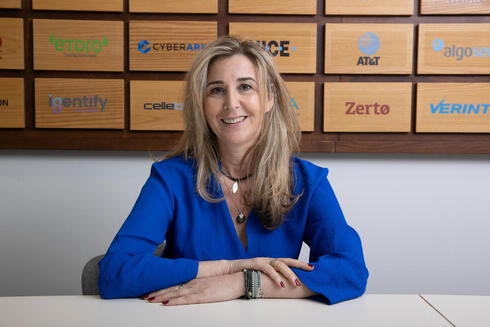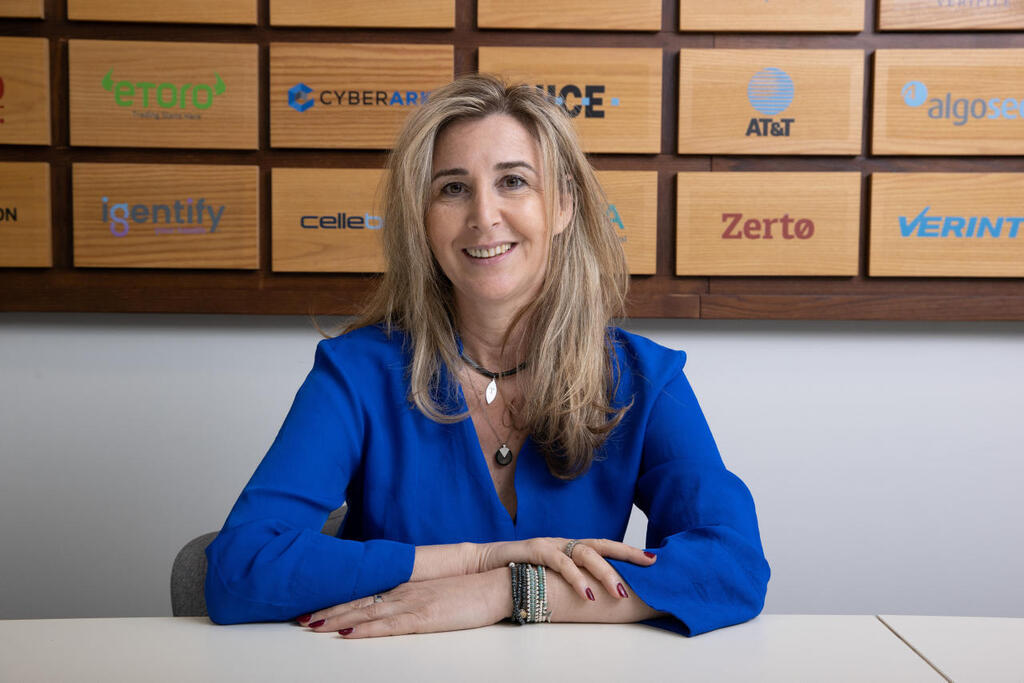
Interview
“I go crazy when women tell me ‘I can’t do it because of the kids’,” says Speedvalue founder and CEO
Tali Shem Tov, who is the only female CEO of an Israeli publicly-traded high tech company explains why she doesn’t believe in glass ceilings
Tali Shem Tov is the founder, CEO, and co-owner of Speedvalue, a company that helps transfer businesses from the digital sphere to the cloud - and is the only woman who heads an Israeli high tech company that is publicly-traded on the Tel Aviv Stock Exchange. Speedvalue, (along with its subsidiaries CodeValue and WellDone) completed an initial public offering last July at a NIS 130 million (approximately $39.8 million) valuation, and is now traded at a NIS 109 million (approximately $33 million) valuation. Shem Tov (50) was previously the CEO of the software company Qualitest Ltd.’s Israel and Eastern Europe branch and in 2019 she led the company to a $420 million exit deal. TechBoost, a bootcamp she later founded within Speedvalue, has trained 200 people who have later integrated into the high tech industry.
As the only woman who is the head of a publicly-traded Israeli high tech company, do you feel a certain responsibility?
“It’s definitely something that rests on my shoulders - to succeed and lead, and show that there aren’t any ‘glass ceilings’ for women to break. I see the statistics about women who serve in key positions, and there has been some improvement, but it hasn’t been enough. I hope there will be more women like me, and I support those who succeed and feel that we need to inspire the next generation.”
You say there aren’t any glass ceilings, but you’re one of a kind.
“I’ve always worked in a male environment, but I never felt like there was a glass ceiling. There were some meetings where male executives gave me one look and mumbled: ‘oh look, here comes the blonde,’ but pretty soon they realized who they were dealing with. Even one CEO said to me: ‘when you came into the room, I said okay…but once I spoke with you that turned to wow.’ Their perception of me ticked me off, but it never threatened me. I know how to put people in their place in a professional and calm manner, how to speak assertively with a smile, and make the other side feel uncomfortable.”
The environment you’re describing isn’t equal but divisive, it sounds demeaning, insulting, and offensive, and we haven’t even mentioned sexual harassment. No one would ask our male partners whether they need to leave early to pick up their kids from school.
“I agree. We would also never ask a woman that during an interview at our company. A year ago, an amazing young woman came in for an interview. Toward the end of the recruiting process, she shared that she was pregnant and due in four months, and said: ‘I’ll understand if you decide not to hire me.’ But we did anyway. I won’t lie and say it’s easy - because she only started working here once she finished taking her maternity leave, but she was a quality employee and we knew that she’d come back to us highly-motivated, and that is exactly what happened. So you’re right, there is sexual harrassment, and sometimes men treat you disrespectfully, but if you believe in yourself as a person - forget about men and women - and what you bring to the table, then the rest is unimportant.”
Despite that, you can’t argue with the figures. A report by the Israel Innovation Authority shows that only 33% of the high tech workforce, 9% of tech CEOs, and 16% of partners in venture capital firms are women. How can that be changed?
“There needs to be more women in management positions, and we need to do a lot of outreach at schools. During TechBoost classes, I really try to give women more opportunities and encourage them to pursue this subject, but unfortunately only 15%-20% of our applicants are women. It’s crucial they come, since these low figures of female applicants reflect poorly on women. Forgive me, but I interview women and I go crazy when they tell me: ‘we can’t do it, we have certain hours that we have to spend with our kids.’ Women can juggle, and leave early on certain days. Especially today in the post-pandemic period, hybrid work is possible, and ultimately you have a responsibility to complete certain tasks and not a specific number of hours.”
When you were appointed as CEO of Qualitest, you had two young daughters at home. How do you juggle things at home?
“I worked my ass off, it wasn’t easy but it’s possible to do what I did: work really hard and still be there for my girls. I had a rule back then: when my daughters called, I’d always answer and always knew where they were and what they were up to.”
What is the additional value that female leadership brings to a mostly-male industry?
“Female leadership has a different approach. It isn’t impulsive, but deeply considers things and has higher emotional intelligence. We also have abilities to see the bigger picture, and multitask. I see these qualities in several female leaders.
“We’re also much better at collaborating with the management team. Men - even those of them who consultant - have a tendency to make decisions on their own. I can make my own decisions, but first I’ll listen to the management level below me, and see what they have to say. Managers need to be able to change their mind, without hurting their ego, or feeling like the decision undermines their authority. It also makes people feel good to know that they’re part of the decision-making process.”
One of the reasons why men occupy management positions is because they were raised to have self-confidence - even if it’s baseless, while women suffer from Imposter Syndrome more often.
“I have a story that relates to this. When Eyal Zilberman, Qualitest’s founder and currently my partner at Speedvalue, traveled to the Netherlands to set up our branch over there, he offered to appoint me as CEO, I was reluctant. I told him: ‘listen, there’s another senior executive here who was here before me and he also comes from the tech world,’ but he said to me: ‘every manager comes from a different direction. You know the material well, and how to examine things. You know how to look people in the eyes, how to develop and negotiate, and those things are just as important.’ It makes sense to me now, since I’ve seen several CEOs who were techies, but weren’t so successful on the business-end. It’s not that I didn't know the material, but I didn’t know it as well as someone who served in (Israeli military) Unit 8200 did, and that is why I always bring with me a tech expert to meetings with clients from the tech world. I think the winning equation combines a business vision with the ability to bring along people who compliment you in areas that you’re less strong in.”
Did your appointment go over easily with the rest of Qualitest’s management?
“No. My first year as a CEO was the hardest year of my life, mainly because he and other colleagues struggled with my appointment, even though they liked me. A man in that situation would’ve said: ‘listen, I was appointed - you can either accept it or go home,’ or ‘I’m the CEO, and I decide.’ I wasn’t like that. The first six months, I’d come home exhausted, but I’d remember to breathe deeply and let a lot of their feedback bounce off of me, even things that the executive I was appointed ahead of did behind my back.
“After six months, I decided to transfer a certain responsibility from him to another manager, and he didn’t like that at all. To put it simply, he threatened to leave. But I stuck to my decision, and he stayed. It was fine in the end, and we worked well together.”
Do you have any tips for women who want to become leaders in the industry?
“You need to be focused on obtaining a goal, not give up on yourself, and not listen to what people say about you. Let them talk. So what. On the other hand, don’t gossip about your competitors. Everyone has their own place.”
Do you see your daughters continuing your path?
“My eldest daughter, Yuval, is already studying computer science at Tel Aviv University, and a few months ago began working at Microsoft as a cybersecurity developer. I’m so proud of her. She did it entirely on her own, including prepping for the interview, and did her best. It was my lesson to her. It’s not that I didn’t want to help, but I want my girls to try on their own.”
Today, with your experience, would you advise your younger self to cope differently with men who have problems with female management?
“No. If I were to start over, I would act exactly as I did back then - with sensitivity and tolerance.”














